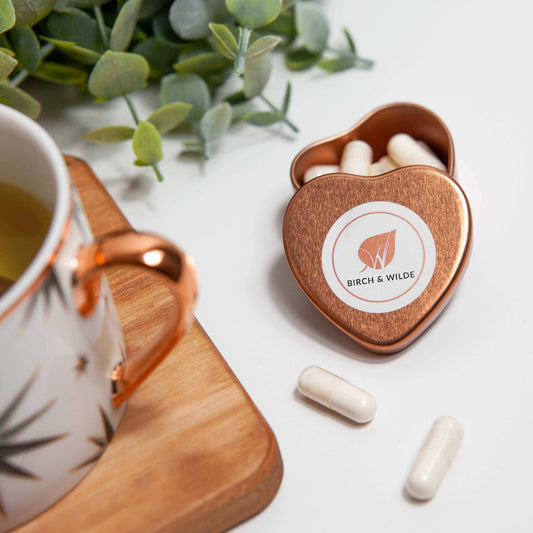BURN OUT (Part 2): The 7 best ways to Support Yourself To Avoid ‘Burnout’


In part one of a blog on ‘Burnout’, we talked about the warning signs that you might be suffering from ‘Burnout’ and what to look out for. These included exhaustion or low energy, a rise in anxiety, lack of motivation, social isolation, not feeling ‘good enough’, increased illness and a decrease in cognitive function.
If you haven’t read Burnout (Part 1), just click here, especially if you recognise one, some or all of the above symptoms.
Once you have recognised and acknowledged that Burnout can happen to anyone, and it might just be happening to you, what can you do to support yourself back to optimum health again? Implementing just a few of the below tips can have a really life changing effect. Have a go and see what you think.
Nutrient Rich Foods
To counteract exhaustion, it is important to eat a diet filled with nutrient rich foods. Gram for gram, some foods have far more benefits than others. Some of the top 11 nutrient rich foods are as follows: Salmon, Kale, Kelp (seaweed – you can take a supplement if preferred!), Garlic, Shellfish, Potatoes, Liver, Sardines (and other oily fish), Blueberries, Egg Yolks and Dark Chocolate.
If not all of these are your favourites (or you are vegetarian, vegan or have allergies), then trying to ensure you get five portions of fresh fruit and vegetables into your diet each day is a really good start. It can also really encourage you to start experimenting with some new recipes.
Consider supplementing your diet
It is well evidenced that Omega-3 fatty acids, Vitamin C, and Vitamin B Complex (especially vitamin B12) can all help to support you while you manage symptoms of burnout. Herbal supplements can help relieve anxiety.
Ashwagandha, a herbal supplement from India, is famed for boosting resilience to stress. As an adaptogen, Ashwagandha helps to moderate your body’s response to stress and reduce the production of the stress chemical cortisol. It can also help to support the reduction of tissue inflammation at the same time. That’s a big relief for aching joints and over-tensed muscles.
Gingko Biloba also supports the reduction of inflammation in your the body. It can also promote good memory function and concentration, and is useful for reducing anxiety.
Valerian root is well documented for its ability to boost restful sleep by gently increasing the amount of the “relaxation” neurochemical known as GABA.
Although not a herb, hydrolysed marine collagen (Type I) is great for reducing joint aches and inflammation. Collagen is the protein that is responsible for providing structure and strength to your skin, hair, bones, joints and nails. Beyond the age of about 25 years, your body’s own production of collagen starts to decline. Taking a hydrolysed collagen supplement (hydrolysed means it is more easily absorbed by the body), can really help to boost your structural protein levels and subsequently reduce on-going aches and pains.
Positive thought patterns and brain training
One of the best ways to move past your bleak outlook is to remind yourself that you’re in a downturn, and that is not necessarily a never ending free-fall. It will not last for ever. You will always have choices, even if sometimes it doesn’t feel that way. The symptoms of burnout can lead to you thinking that you are trapped in a situation when you are not. Through continued and repeated stress you might have come to believe it to be the truth when it is not.
Your choices evaporate only when you tell yourself you have no options. A good exercise to counteract this is to write down every single imaginable idea related to the situation or circumstances causing the most stress or depleting the most time (no matter how they are perceived in terms of un/realistic or im/possible). Somewhere in among the list, there will be some gems that you can really start to work on, one step at a time.
Negative thought patterns can become ingrained and extreme during burnout. Sometimes cancelling out negative thoughts is no more complex than countering with some positive self-talk. For each negative thought that comes into your mind, try countering it will the exact positive opposite (even if you don’t wholly believe it at the time. For example, if your brain says “I am so tired, this is so hard to learn, I will never do it” make your inner voice counteract it with “I have energy, this will be easy as I learn it, I can learn anything I want”. This repeated action will gradually ‘re-programme’ your neural pathways and you will actually become more positive overall.
Mindfulness and meditation
Consider learning to practice meditation. It is fast becoming a revolution and even big businesses are running meditation and mindfulness sessions for their teams. Yoga can really help with learning meditative breathing skills, and YouTube is an vast resource for guided meditations, tailored to your needs (sleep, stress, relaxation etc). Some of its top benefits include reducing stress and anxiety, and improving cognitive function and relaxation.
Mindful awareness, also known as mindfulness (and including meditation), is also a practice that you can learn to perform at anywhere, anytime. It takes you out of negative, toxic thought patterns. Instead of focusing on turning your thinking towards optimism, mindfulness helps you stay in the moment, and reduce or eliminate the time and energy you expend on anticipatory dread and procrastination.
Be kind to yourself in all things and all ways. Don’t judge yourself harshly, ever, and if you don’t succeed, or don’t do the best job imaginable, remember that you can try again.
Schedule in fun
If you’re so busy (and it’s likely you are) that the easiest items to sacrifice in your life are your own self-care activities, you need to reclaim those fun times. Fun is not frivolous, it is very much a necessity, and one that you deserve. Enjoyment and pleasure are proven to reduce the production of cortisol, helping to lower blood pressure, and distract the mind and brain from repetitious negative thinking. Put fun and self-care back on your calendar and block it off.
Professional support
It is definitely worth considering seeking counselling or psychotherapy. Having a person to talk to who can be an objective but interested observer, is a blessing. No two people experience burnout exactly the same way. For example, some people feel an overabundance of negative feelings, while others become detached from their emotions and feel very little but helpless. Therapists are trained to help with all the emotions of burnout, as well as the techniques to help break through it. Even a short few sessions of therapy or counselling can kick-start you and help you to gain the clarity you need to get your life back on track.
Time with friends, family or loved ones
Burnout can create a towering sense of isolation. Getting out with friends (away from the workplace) builds and strengthens personal relationships. Adding in a few actives with friends really helps re-establish connections. Although you may feel you are in a position where you are ‘not yourself’ and you might not want people to see you differently, it can really help to talk to people you like and trust. Being honest with friends about what is happening can significantly increase the strength of your support network and your connection to people overall. The results can be amazing.
Often, people who suffer burnout are working so hard to provide for their loved ones that they inadvertently become almost absent from their lives. The result is that you miss out on the very thing that you are working so hard to support. This is often a vicious cycle and can result in you feeling more isolated and detached from the people you love the most.
There are few moments when free time will magically show up in a crowded work schedule. Try to block out time in your calendar a long way in advance. Make this a time that cannot be taken off your calendar. Making a defined and conscious effort to create family time will have great results. Turn off your mobile devices, leave the house is necessary, just ensure you reconnect… It’s worth it!
No-one can handle high stress coming from all parts of their life indefinitely. It is important to really define what success and failure mean to you. This way, you are the one who actively decides what you do and don’t do. You are in control of what is the most important at any given time this way. It allows you to properly prioritise (including things like time with family) rather than being compelled by someone else’s ideas of what you should do or should be.
What to remember...
Finally, remember to treat yourself with kindness. It is 100% ok to slow down and put yourself first. It is really only by doing this that you will really be able to give your best anyway. As the saying goes… ‘you cannot drink from an empty cup’. You’re a real person (not superwoman or superman!) and real people need to look after themselves before they can truly look after others (or any other role of their life).
By practising love and kindness towards yourself, and focusing on what you truly value, you’ll not only be the best version of you, but you’ll feel at your best and most energised. Taking on just a few of the tips above will really help you to support yourself through any possible burnout. You can really start to Empower Your Wellbeing again and live your best life, for both yourself and the people you care about the most.
Look after yourself and lots of love,

P.S. Enjoyed our blog? You may like to take a look at our others:
BURN OUT (Part 1): The 8 Most Important Signs You Might Suffering From ‘Burnout’
MAGNESIUM: 5 Simple (But Important) Reasons To Supplement Magnesium














